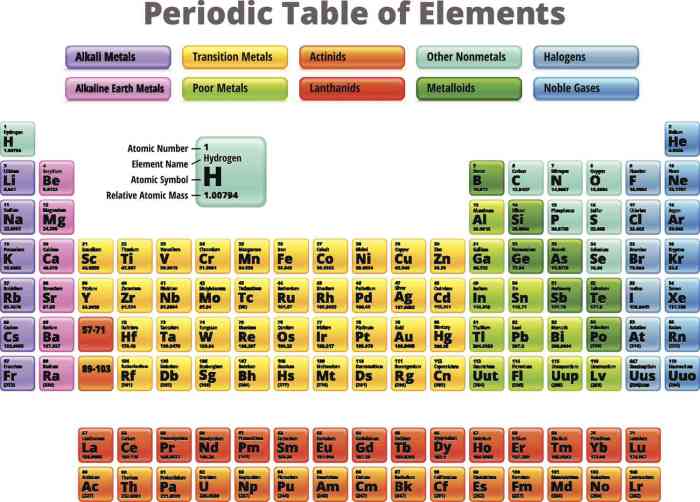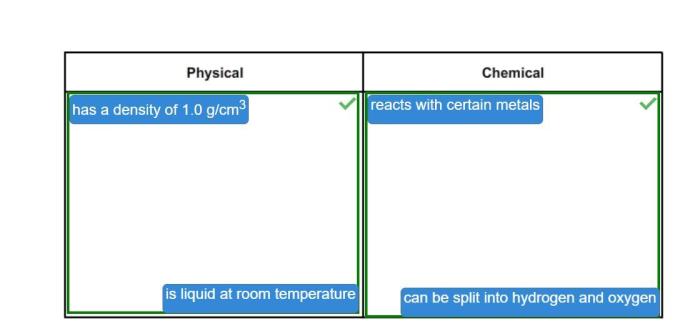What are several properties of the crystallogens? Crystallogens, a fascinating class of materials, exhibit a remarkable array of properties that make them invaluable for various applications. This article delves into the physical, chemical, and practical aspects of crystallogens, providing a comprehensive understanding of their unique characteristics.
From their crystalline structure to their optical and thermal properties, crystallogens offer a diverse range of attributes that determine their suitability for specific applications. Their chemical composition and reactivity further contribute to their versatility, while their stability under different environmental conditions ensures their reliability in various settings.
Define Crystallogens

Crystallogens are substances that have the ability to induce crystallization in other substances. They are typically organic compounds, such as alcohols, ketones, or esters, that have a specific molecular structure that allows them to interact with the surface of the crystallizing substance and promote the formation of crystals.
Examples of crystallogens include:
- Ethanol
- Acetone
- Ethyl acetate
Physical Properties of Crystallogens

Crystalline Structure
Crystallogens typically have a crystalline structure, which means that their molecules are arranged in a regular, repeating pattern. This crystalline structure gives crystallogens their characteristic properties, such as their shape, hardness, and melting point.
Optical Properties, What are several properties of the crystallogens
Crystallogens can have a variety of optical properties, depending on their chemical composition and crystalline structure. Some crystallogens are transparent, while others are opaque. Some crystallogens have a high refractive index, which means that they can bend light waves, while others have a low refractive index.
Thermal Properties
Crystallogens typically have a high melting point, which means that they are not easily melted. This is because the crystalline structure of crystallogens is very stable. Crystallogens also have a low thermal conductivity, which means that they do not conduct heat well.
Chemical Properties of Crystallogens: What Are Several Properties Of The Crystallogens

Chemical Composition
Crystallogens are typically organic compounds, but they can also be inorganic compounds. The chemical composition of crystallogens varies depending on their source. Some crystallogens are found in nature, while others are synthesized in laboratories.
Reactivity
Crystallogens are generally unreactive with other chemicals. However, they can react with strong acids or bases.
Stability
Crystallogens are typically stable under normal environmental conditions. However, they can be degraded by heat, light, or moisture.
Applications of Crystallogens

Optics
Crystallogens are used in a variety of optical applications, such as lenses, prisms, and polarizers. This is because crystallogens have a high refractive index and are transparent.
Electronics
Crystallogens are also used in a variety of electronic applications, such as transistors, diodes, and capacitors. This is because crystallogens have a high electrical conductivity.
Other Applications
Crystallogens are also used in a variety of other applications, such as food additives, pharmaceuticals, and cosmetics.
Quick FAQs
What is the definition of a crystallogen?
A crystallogen is a substance that promotes or facilitates the growth or formation of crystals.
What are some examples of crystallogens?
Examples of crystallogens include seed crystals, impurities, and certain chemical additives.
What are the key physical properties of crystallogens?
The physical properties of crystallogens include their crystalline structure, optical properties (color, transparency, refractive index), and thermal properties (melting point, thermal conductivity).
What are the chemical properties of crystallogens?
The chemical properties of crystallogens include their chemical composition, reactivity with various chemical agents, and stability under different environmental conditions.
What are some applications of crystallogens?
Crystallogens find applications in optics, electronics, and other industries due to their unique properties, such as their ability to control crystal growth and modify crystal properties.